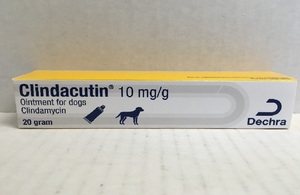PM opening statement at COVID-19 press conference: 15 November 2021
Good afternoon,
I have just chaired a meeting of the government’s emergency COBR committee,
following the sickening attack outside Liverpool Women’s Hospital yesterday.
My thoughts remain with all those affected,
and, on behalf of the whole country, I want to pay tribute to the emergency services who responded as always with such speed and professionalism.
The police have now confirmed this is being treated as a terrorist attack
and while the investigation continues at pace, you will understand that I can’t comment on the details of the case or its motivation.
But it is a stark reminder of the need for us all to remain utterly vigilant,
and the independent Joint Terrorism Analysis Centre are today raising the UK’s threat level from substantial to severe, meaning an attack is highly likely.
But what yesterday showed above all,
is that the British people will never be cowed by terrorism.
We will never give in to those who seek to divide us with senseless acts of violence,
and our freedoms and our way of life will always prevail.
Turning to Covid, I want to update you on our progress,
and, in particular, on these storm clouds that are gathering over the continent.
A new wave of Covid has steadily swept through central Europe and is now affecting our nearest neighbours in Western Europe.
Our friends on the continent have been forced to respond with various degrees of new restrictions,
from full lockdowns, to lockdowns for the unvaccinated, to restrictions on business opening hours and restrictions on social gatherings.
We don’t yet know the extent to which this new wave will wash up on our shores,
but history shows we cannot afford to be complacent.
Indeed in recent days cases there have been rising here in the UK, so we must remain vigilant.
Because there is one lesson we can draw from the current situation in Europe.
Those countries with lower vaccination rates have tended to see bigger surges in infection, and in turn been forced to respond with harsher measures.
While those countries with higher vaccination rates have, so far, fared better.
This shows us once again that if we want to control the epidemic here in the UK,
and if we want to avoid new restrictions on our daily lives, we must all get vaccinated as soon as we are eligible.
Today, following the recommendation of the independent Joint Committee on Vaccination and Immunisation,
we are making second jabs available to all 16 and 17 year olds,
from 12 weeks after their first dose.
And we are making boosters available to all those aged 40 to 49
from six months after their second dose.
Boosters as you know are already available for all those over 50,
those with underlying health conditions
and those working on the frontline of our NHS and in care homes.
And let me explain why that booster is absolutely crucial,
because over time the protection from two jabs starts to wane,
but that the third jab boosts protection back up to over 90 per cent against symptomatic infection.
So far around 12.6 million people across the UK have had that booster,
including in England around three-quarters of all people over 70
and 80 per cent of eligible older people in care homes.
But many more people who are eligible have not yet come forward.
And so if you are one of those people, please go and get that third jab.
Because it would be an utter tragedy if, after everything we have been through,
people who had done the right thing by getting double vaccinated
ended up becoming seriously ill or even losing their lives
because they allowed their immunity to wane by not getting their booster.
And if you haven’t even had one dose, it’s not too late.
In fact there’s never been a better time to get that vital protection as we head into winter.
So please, please go and get vaccinated,
to protect yourself and others,
and in doing so we can help to ensure that we can continue in the way that we are
sticking to our plan of using vaccination to control this virus.
Thank you very much.

